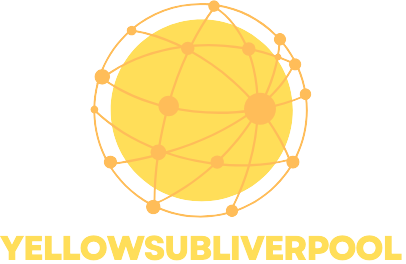Table of Contents
ToggleIn a world where everyone’s shouting to be heard, how do you make your voice stand out? Enter the concept of “identity via output.” It’s not just about who you are; it’s about what you produce. Whether it’s a witty tweet, a blog post that sparks debate, or a video that leaves viewers in stitches, the output shapes identity like a sculptor chiseling away at marble.
Think of it as your personal brand’s secret sauce. The more authentic and engaging your output, the clearer your identity becomes. So, if you’ve ever wondered how to turn your quirks into a captivating persona, you’re in the right place. Let’s explore how your creative endeavors can define you, one laugh and one insight at a time.
Understanding Identity Via Output
Identity forms through the content individuals create. Unique outputs, like blog posts and social media updates, shape perceptions.
Definition of Identity
Identity refers to how individuals view themselves and how others perceive them. It encompasses personal traits, beliefs, and values. Social interactions contribute significantly to this definition. Moreover, the digital landscape adds layers to identity, as online personas often differ from real-life experiences. Authenticity plays a crucial role in ensuring consistency between online and offline identities. Collective experiences, whether personal or professional, influence how identity develops over time.
The Role of Output in Identity Formation
Output serves as a reflection of an individual’s thoughts, values, and interests. Creative endeavors, such as writing or video production, showcase personal beliefs and preferences. Engagement with audiences can lead to deeper connections, enhancing personal brands. Content generated through various platforms captures unique perspectives. Continuous output reinforces individual’s presence within communities. Moreover, feedback from audiences shapes future content, creating an evolving identity. The more one creates, the more clearly their identity emerges, influencing how others engage with them.
Theoretical Frameworks
The concept of identity via output draws from various theoretical frameworks that explore how individuals shape their identities through creative expressions.
Psychological Perspectives
Psychological theories highlight the correlation between output and identity formation. The self-determination theory emphasizes autonomy and creativity as essential for self-expression. When individuals create content, they reflect personal experiences and inner thoughts. Authentic creative output reinforces self-concept, as aligning personal beliefs with public expressions enhances identity coherence. Identity development theory further illustrates that as individuals engage in diverse outputs, they explore and solidify their personal values, beliefs, and traits. Feedback from audiences can also influence this development; when individuals receive recognition or criticism, it shapes their content creation and identity evolution.
Sociocultural Influences
Sociocultural frameworks focus on the impact of external factors on identity via output. Social interactions play a significant role in shaping one’s personal brand and identity. Collective norms, values, and cultural narratives influence how individuals express themselves through creative outputs. Various communities provide spaces for members to share experiences and ideas, allowing identity construction to occur within social environments. Additionally, online platforms facilitate the exchange of creative works, amplifying individual voices. Engagement with different cultural contexts broadens perspectives, enriching personal identity and fostering connections with audiences. This interplay between societal influences and personal output solidifies how identity manifests across diverse encounters.
Applications of Identity Via Output
Identity via output manifests in various ways, influencing both personal and professional spheres. Understanding these applications allows individuals to harness their creative efforts effectively.
Personal Development
Personal development benefits greatly from consistent output creation. It encourages self-reflection, allowing individuals to articulate their thoughts and ideas clearly. Sharing experiences through writing, art, or videos fosters emotional intelligence and self-awareness. Individuals often discover their strengths and weaknesses through feedback from their audience. Engaging with diverse perspectives enhances creativity, further shaping personal identity. As they create, they cultivate resilience by learning to handle criticism and embrace growth. Ultimately, this ongoing process facilitates stronger personal identities aligned with their values and aspirations.
Professional Identity
Professional identity emerges significantly through one’s creative outputs. Individuals establish their expertise by sharing knowledge and insights relevant to their field. Consistency in output creates a recognizable brand that attracts opportunities. Building an online presence through blogs or social media positions individuals as thought leaders within their industries. Networking with peers and interacting with audiences further solidifies their professional identity. Additionally, adapting outputs based on audience feedback can enhance credibility and relevance in the marketplace. As a result, one’s professional identity evolves alongside their contributions, influencing perceptions among colleagues and clients.
Challenges and Considerations
Navigating identity via output presents various challenges. Understanding these challenges is essential for individuals optimizing their personal and professional brands.
Misrepresentation Risks
Misrepresentation often occurs when online personas deviate from reality. Individuals may portray idealized versions of themselves, leading to disconnection with their audience. Authenticity proves vital in developing trust and fostering genuine connections. Mistakes can arise from curating content that lacks alignment with personal values. Adhering to authenticity encourages a more truthful representation, avoiding potential backlash. Creative outputs should accurately reflect thoughts, reinforcing an honest narrative. Individuals risk losing credibility when their digital presence contradicts offline experiences. Addressing these concerns shapes more truthful identities.
Impact of Digital Outputs
Digital outputs significantly influence personal identity and public perception. Creative endeavors, such as blog posts and social media updates, showcase individual beliefs and interests. Audiences often associate these outputs with authenticity, foregrounding their impact on identity formation. Consistency in messaging strengthens the connection between online and offline identities. Feedback from various platforms serves as a catalyst for growth and adaptation. Adjustments based on audience engagement foster perceptions of relevancy. Recognizing the implications of digital outputs aids individuals in molding their identities effectively. Understanding audience reception shapes future content, refining personal narratives.
Identity via output is a powerful concept that underscores the relationship between creativity and self-perception. By producing authentic content individuals can cultivate a personal brand that resonates with their true selves. This dynamic process not only enhances personal growth but also opens doors in professional spheres.
As individuals navigate the complexities of online and offline identities they must remain mindful of authenticity. Engaging with audiences and adapting to feedback fosters deeper connections and strengthens one’s presence in various communities. Ultimately the journey of defining identity through creative output is ongoing and ever-evolving, reflecting the unique experiences and values that shape each person’s narrative.







